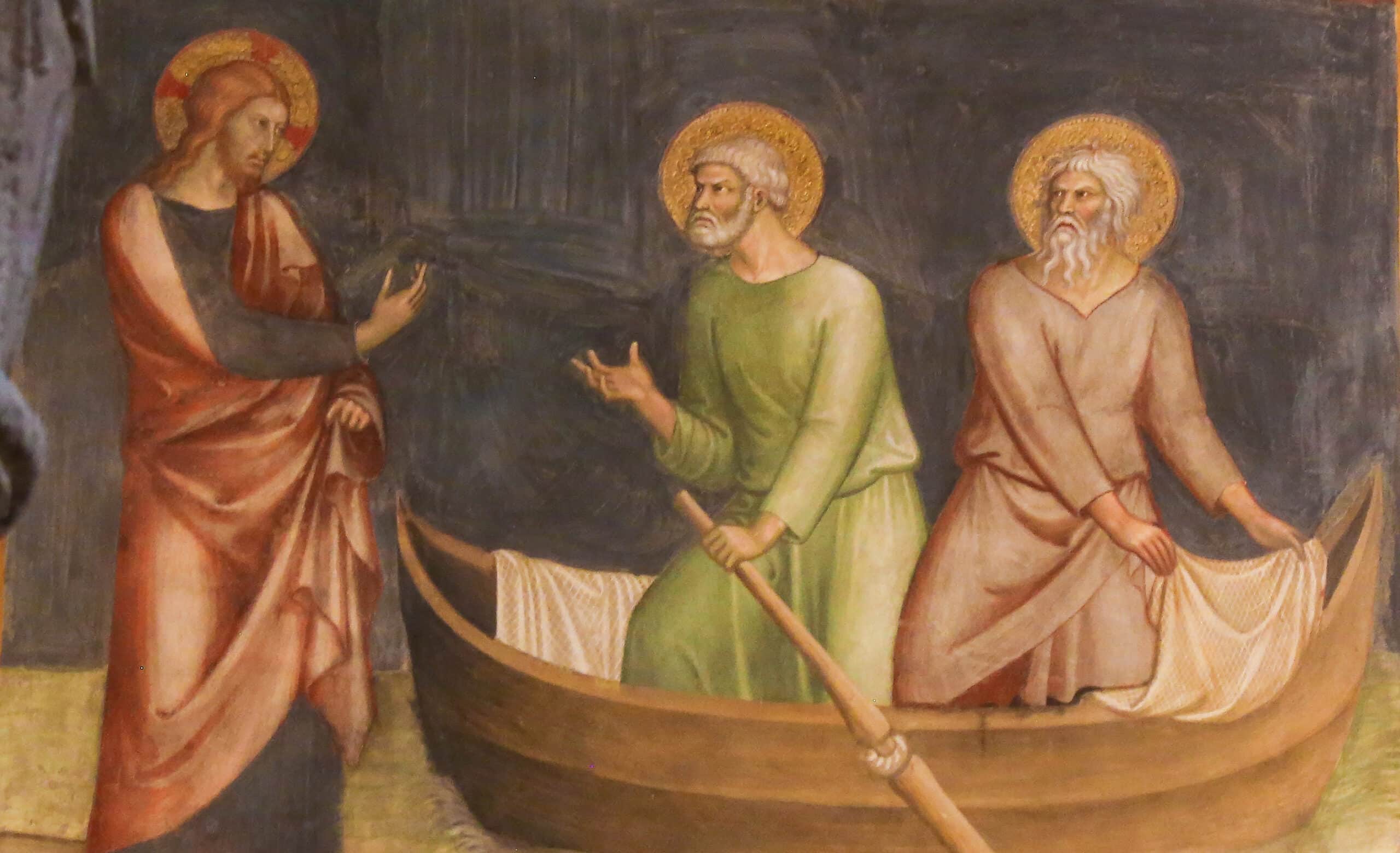
What did the first apostles recognize in Jesus? It’s not clear from the text that they had heard about his baptism at the hands of John. To them, Jesus was likely an unknown person who interrupted their workaday world, inviting them to become disciples in a yet unclarified mission.
And yet there must have been something about Jesus that answered the deepest desires of the human heart. The Gospel of Matthew references this desire implicitly by raising a prophecy in Isaiah. Isaiah’s prophecy refers to the glorification of a seaward route, one apart from the lands of Naphtali and Zebulun.
| Jan. 26 – Third Sunday in Ordinary Time |
|---|
|
Is 8:23–9:3
Ps 27:1, 4, 13-14
1 Cor 1:10-13, 17
Mt 4:12-23
|
While the geography matters in explaining why Jesus left behind Nazareth, going to the Sea of Galilee instead of Jerusalem, the prophecy is not just about identifying where God will fulfill his promise.
The prophecy addresses the very desire of the human heart for redemption. Those who have dwelt in darkness, in a world of sorrow, will dwell in a land of light. Those who suffer under the burden of sickness and death will be healed.
This prophecy in Isaiah, while historical, also refers to the entire human condition. Are not each of us born into a kind of darkness, having to discern the great meaning that will guide our lives? Do we not experience the shadows of suffering, the desolation of death, the temptation to meander into meaninglessness?
We are creatures of desire, who long for a direction, a telos to our life that leads to ultimate fulfillment.
And this is what the disciples heard in the voice of Jesus. They heard in the invitation to become fishers of men an answer to the deepest desires of their hearts. They heard the voice of Jesus, the desire of nations, the desire of every man and every woman.
We, like the disciples, can still hear this voice through the Church. Those of us who are born in the United States are tempted to think about the Church as a gathering of like-minded folks. We are those who like Jesus, and therefore, we get together on Sundays and other times to celebrate this fact.
But as Paul proclaims to us, this isn’t the Church. The Church is not the voice of Apollo, it’s not the voice of Paul. It’s not the voice of this bishop, this priest, this lay evangelist who travels the country. It is the voice of Christ, calling out to every man and woman this day, “Follow me.”
The Church, thus, each year contemplates the wondrous call of the disciples so that she can learn something more about the pedagogy of Jesus, Our Lord’s way of answering the desires of the nations.
The great temptation of the Church is not to rely on the voice of Jesus, on the genius of the Word made flesh, but to rely on our own slogans, our own political projects, our own strategic vision for evangelization.
When we do this, should we be surprised that men and women today hear in the voice of the Church not the answer to their deepest desires, but slick marketing, politics in religious dress, and business-speak?
Human desire does not respond to this, at least in the long term. It responds only to the voice of Christ, “Follow me.”
Timothy P. O’Malley, Ph.D., is the director of education at the McGrath Institute for Church Life at the University of Notre Dame.





